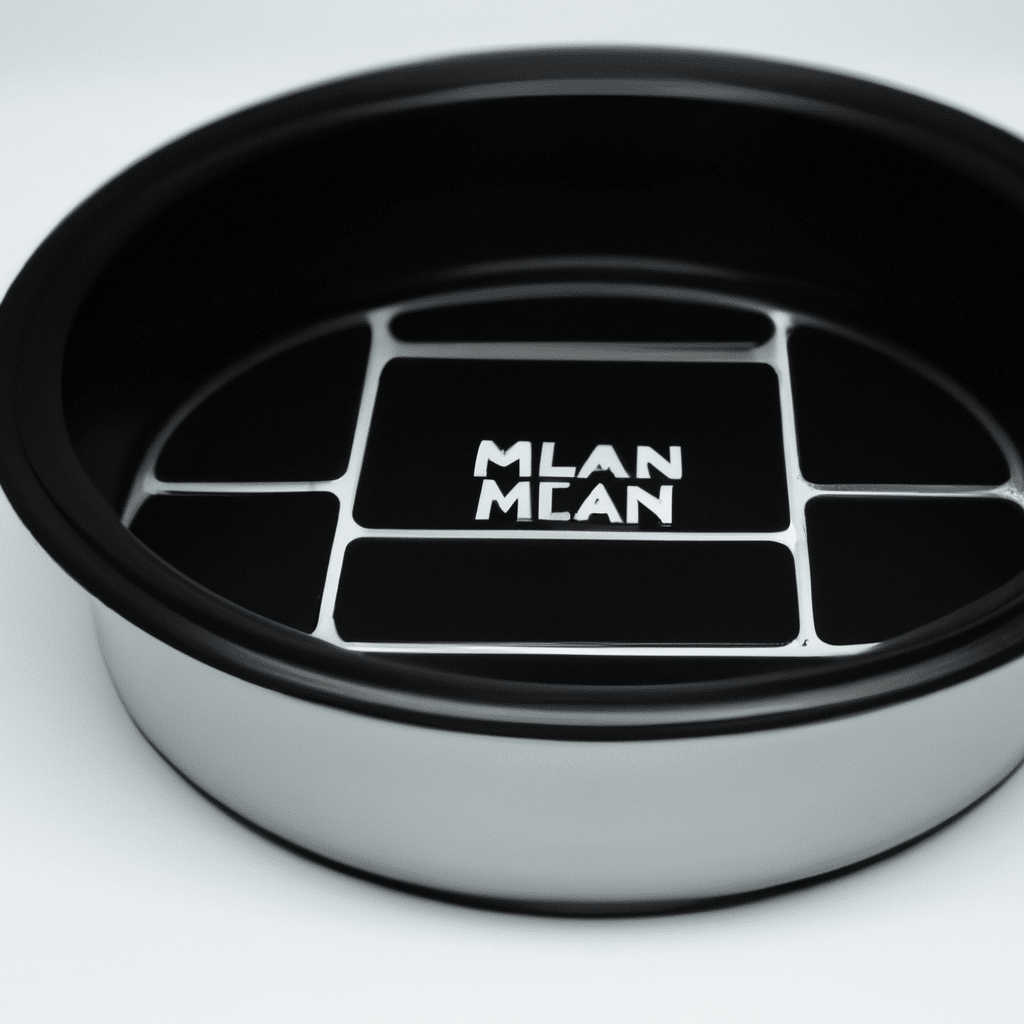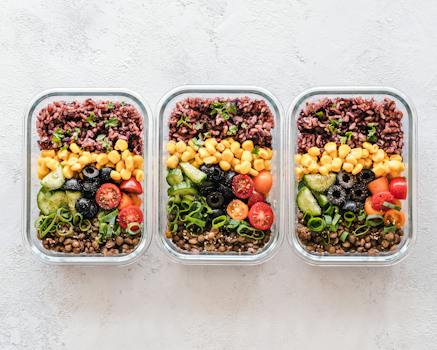
Meal planning is an essential component for maintaining a healthy lifestyle. With the fast-paced nature of modern life, it is easy to rely on convenience foods or skip meals altogether. However, by taking the time to plan and prepare meals in advance, individuals can ensure they are nourishing their bodies with nutritious and balanced food choices. Meal planning not only promotes healthier eating habits, but it also helps in controlling portion sizes, saving time and money, reducing stress, and achieving specific dietary goals. In this article, we will delve into the various reasons why meal planning is crucial for a healthy and well-rounded lifestyle.
- 1. Introduction
- 1.1. What is a meal plan?
- 1.2. Why is meal planning important?
- 1.3. Benefits of meal planning
- 1.4. Types of meal plans
- 1.5. How to create a meal plan
- 2. Health and Nutrition
- 2.1. Balanced diet and portion control
- 2.2. Meeting nutritional needs
- 2.3. Weight management
- 2.4. Preventing chronic diseases
- 2.5. Improved digestion
- 3. Time and Money Saving
1. Introduction
Meal planning is a crucial aspect of maintaining a healthy lifestyle. It involves the practice of organizing and preparing meals in advance, typically for a week or a month. By taking the time to plan meals, individuals can ensure that they are consuming nutritious and balanced food options. Meal planning also helps in saving time, money, and effort, as it eliminates the need for last-minute grocery shopping or resorting to unhealthy takeout meals. This article will explore the various reasons why meal planning is essential for a healthy lifestyle and provide useful tips to get started with it.
1.1. What is a meal plan?
A meal plan is a pre-determined schedule of meals that an individual or a family follows to ensure a balanced and nutritious diet. It involves deciding in advance what to eat for each meal, including breakfast, lunch, dinner, and snacks. A meal plan typically includes specific recipes or food choices for each meal, along with portion sizes and serving recommendations. It is a practical tool that helps individuals or families organize their meals, grocery shopping, and cooking in an efficient and healthy manner. By creating a meal plan, individuals can ensure they are consuming a variety of nutrients, controlling portion sizes, and avoiding unhealthy food choices. Meal planning is an essential component of a healthy lifestyle as it promotes mindful eating, supports weight management, saves time and money, and reduces food waste.
1.2. Why is meal planning important?
Meal planning is an essential aspect of maintaining a healthy lifestyle. It involves carefully selecting and organizing meals in advance, ensuring that they are nutritious and well-balanced. By taking the time to plan out meals, individuals can better control their calorie intake, portion sizes, and food choices. This practice promotes healthier eating habits, aids in weight management, and reduces the likelihood of impulsive, unhealthy food decisions. Additionally, meal planning can save time and money by minimizing food waste and preventing frequent dining out. Overall, incorporating meal planning into one’s routine is crucial for achieving and sustaining a healthy lifestyle.
1.3. Benefits of meal planning
Meal planning is a crucial aspect of maintaining a healthy lifestyle. It involves the process of carefully selecting and organizing meals for a certain period, usually a week or two, in advance. This practice offers numerous benefits that contribute to improved overall health and well-being. By dedicating some time to plan meals in advance, individuals can reap the following advantages:
1. Time and Effort Savings: Meal planning eliminates the need to constantly think about what to cook each day. By preparing a comprehensive meal plan, individuals can save time and effort spent on daily meal decision-making, grocery shopping, and food preparation.
2. Healthier Food Choices: Planning meals in advance allows individuals to make healthier food choices. By considering nutritional requirements and including a variety of fruits, vegetables, whole grains, and lean proteins in the meal plan, individuals can ensure they consume a well-balanced diet.
3. Portion Control: Meal planning helps in controlling portion sizes, which is essential for weight management and overall health. By pre-determining the quantities of ingredients and portioning meals according to individual needs, it becomes easier to maintain a healthy weight.
4. Budget-Friendly: Planning meals in advance enables better budgeting. By creating a shopping list based on the meal plan, individuals can avoid impulsive purchases and reduce food waste, ultimately leading to financial savings.
5. Reduced Stress: Having a meal plan in place reduces the stress associated with last-minute meal decisions. It eliminates the need to rush to the grocery store or order takeout, allowing individuals to better manage their time and reduce daily stress levels.
Overall, meal planning is an essential tool for promoting a healthy lifestyle. It not only saves time and effort but also encourages healthier food choices, portion control, budget-friendliness, and stress reduction.
1.4. Types of meal plans
Meal planning is an essential aspect of maintaining a healthy lifestyle. By organizing and preparing meals in advance, individuals can ensure that they are consuming nutritious and well-balanced food options. There are various types of meal plans available, each catering to different dietary preferences and goals. Whether one is aiming to lose weight, build muscle, or simply maintain a healthy diet, having a well-thought-out meal plan can make a significant difference in achieving those objectives.
1.5. How to create a meal plan
Meal planning is a crucial aspect of maintaining a healthy lifestyle. It involves carefully selecting and organizing meals and snacks for a specific period, typically a week or two. By creating a meal plan, individuals can ensure they are consuming a well-balanced diet that meets their nutritional needs.
There are several reasons why meal planning is essential. Firstly, it helps in managing time effectively. With a pre-determined plan, individuals can save time on deciding what to cook each day and the hassle of last-minute grocery shopping. This is particularly beneficial for busy individuals or families.
Secondly, meal planning promotes healthier food choices. When meals are planned in advance, it is easier to incorporate a variety of nutritious foods into the diet. By including a balance of fruits, vegetables, whole grains, lean proteins, and healthy fats, individuals can ensure they are getting all the essential nutrients their body needs.
Additionally, meal planning can contribute to weight management. By having a plan in place, individuals are less likely to rely on unhealthy convenience foods or takeout meals, which are often high in calories, sodium, and unhealthy fats. It allows for better portion control and helps individuals make conscious choices that align with their health goals.
Lastly, meal planning can also save money. By creating a detailed shopping list based on the planned meals, individuals can avoid impulse purchases and reduce food waste. It promotes mindful grocery shopping and ensures that ingredients are used efficiently.
In conclusion, meal planning is an essential tool for maintaining a healthy lifestyle. It helps in effective time management, promotes healthier food choices, aids in weight management, and can even save money. By investing a little time and effort into creating a meal plan, individuals can reap numerous benefits for their overall well-being.
2. Health and Nutrition
Proper health and nutrition are fundamental aspects of leading a healthy lifestyle. One key element of maintaining good health is meal planning. Meal planning involves carefully selecting and preparing meals in advance to ensure that they are balanced and nutritious.
By engaging in meal planning, individuals can take control of their eating habits and make healthier choices. This practice allows people to prioritize their nutritional needs and avoid impulsive and unhealthy food choices.
Meal planning also helps in managing portion sizes and calorie intake. When meals are planned in advance, it becomes easier to monitor the quantity of food consumed and ensure that it aligns with individual dietary goals.
Additionally, meal planning can save time and money. By planning meals ahead, individuals can make a shopping list and buy only the necessary ingredients. This reduces the likelihood of impulse purchases and eliminates the need for frequent trips to the grocery store.
In conclusion, meal planning is an essential component of a healthy lifestyle. It promotes good health by facilitating balanced and nutritious eating habits, managing portion sizes and calorie intake, as well as saving time and money.
2.1. Balanced diet and portion control
A balanced diet and portion control are crucial components of maintaining a healthy lifestyle. When it comes to health and nutrition, meal planning plays a vital role in ensuring you meet your dietary needs while also managing portion sizes. By incorporating a variety of nutritious foods into your meals, you can provide your body with the essential nutrients it needs to function properly and maintain good health.
A balanced diet involves consuming the right proportions of carbohydrates, proteins, and fats, as well as vitamins and minerals. This means including a variety of fruits, vegetables, whole grains, lean proteins, and healthy fats in your meals. Each food group provides different nutrients that are necessary for your body to function optimally.
Portion control is equally important as it helps prevent overeating and promotes weight management. By being mindful of portion sizes, you can avoid consuming excessive calories, which can lead to weight gain and various health issues. Measuring and controlling the amount of food you eat can help you maintain a healthy weight and reduce the risk of chronic diseases such as obesity, diabetes, and heart disease.
Meal planning allows you to take control of your diet by organizing and preparing your meals in advance. This not only saves time and money but also helps you make healthier food choices. By planning your meals, you can ensure that each meal consists of a balanced combination of nutrients, and you can also adjust portion sizes according to your specific needs and goals.
In conclusion, a balanced diet and portion control are essential for maintaining a healthy lifestyle. Incorporating a variety of nutritious foods and being mindful of portion sizes through meal planning can help you meet your dietary needs, manage your weight, and reduce the risk of chronic diseases.
2.2. Meeting nutritional needs
Meeting nutritional needs is a crucial aspect of maintaining a healthy lifestyle. Proper nutrition plays a significant role in promoting overall health and well-being. By planning our meals effectively, we can ensure that our bodies receive the essential nutrients they need to function optimally.
A well-balanced meal plan should include a variety of food groups, such as fruits, vegetables, whole grains, lean proteins, and healthy fats. These nutrients provide the necessary vitamins, minerals, and antioxidants that support various bodily functions.
One important consideration in meal planning is to incorporate foods from each food group in the right proportions. This ensures that we obtain a diverse range of nutrients and avoid any deficiencies. For instance, fruits and vegetables are excellent sources of vitamins and fiber, while whole grains provide essential carbohydrates for energy.
In addition to the types of foods we consume, portion control is equally important. Eating appropriate portion sizes helps prevent overeating and promotes weight management. It is essential to be mindful of portion sizes to avoid consuming excess calories, which can lead to weight gain and other health issues.
Furthermore, meal planning allows us to be mindful of our dietary requirements and any specific health conditions we may have. For example, individuals with certain medical conditions, such as diabetes or hypertension, may need to follow a specific diet that restricts certain foods. Planning meals in advance helps in adhering to these dietary restrictions and maintaining better control over our health.
In summary, meeting nutritional needs through effective meal planning is vital for a healthy lifestyle. By including a variety of food groups in the right proportions and being mindful of portion sizes, we can ensure that our bodies receive the essential nutrients they require. Additionally, meal planning allows us to accommodate any specific dietary requirements and maintain better control over our overall health.
2.3. Weight management
Weight management is a crucial aspect of maintaining a healthy lifestyle. When it comes to health and nutrition, meal planning plays a significant role. Planning your meals in advance not only helps you make healthier food choices but also allows you to control portion sizes and avoid unnecessary snacking.
By creating a well-balanced meal plan, you can ensure that you are getting all the necessary nutrients your body needs. This includes incorporating a variety of fruits, vegetables, whole grains, lean proteins, and healthy fats into your diet.
Meal planning also helps in managing calorie intake, which is essential for weight management. By determining the number of calories you need each day and spreading them out across your meals, you can maintain a healthy balance. It prevents overeating and ensures that you are consuming the right amount of calories for your body’s needs.
Additionally, meal planning allows you to save time and money. By knowing what ingredients you need in advance, you can make a grocery list and avoid unnecessary purchases. It also helps in reducing food waste by using leftovers efficiently.
In conclusion, meal planning is an essential tool for maintaining a healthy lifestyle. It provides numerous benefits such as making healthier food choices, controlling portion sizes, managing calorie intake, and saving time and money. By incorporating meal planning into your routine, you can take charge of your weight management goals and improve your overall well-being.
2.4. Preventing chronic diseases
Preventing chronic diseases is crucial for maintaining a healthy lifestyle. One of the most effective ways to prevent such diseases is through proper health and nutrition practices. By incorporating a well-balanced meal plan into your daily routine, you can significantly reduce the risk of developing chronic conditions.
Meal planning allows you to have control over your food choices and ensures that you are consuming a variety of nutrients necessary for good health. It helps in avoiding unhealthy food options and encourages the consumption of wholesome, nutrient-dense meals.
A well-designed meal plan takes into consideration your individual dietary needs and goals. It ensures that you are getting an adequate amount of essential nutrients, such as vitamins, minerals, proteins, and carbohydrates. This is especially important for individuals with specific dietary restrictions or health conditions.
Moreover, meal planning promotes portion control, which plays a vital role in maintaining a healthy weight and preventing obesity-related diseases. It helps in managing calorie intake and ensures that you are not overeating or indulging in unhealthy snacks.
Additionally, meal planning saves time and money. By preparing your meals in advance, you can avoid impulse food purchases and reduce the temptation to eat out or order takeaways. This not only helps in maintaining a healthy diet but also contributes to financial savings.
In conclusion, incorporating meal planning as a part of your healthy lifestyle is highly beneficial for preventing chronic diseases. It empowers you to make mindful food choices, ensures balanced nutrition, promotes portion control, and helps in managing weight. Start meal planning today and take a proactive step towards a healthier future.
2.5. Improved digestion
Improved digestion is a key aspect of maintaining overall health and nutrition. When our digestion is functioning optimally, we are able to properly break down and absorb nutrients from the foods we consume, leading to better overall nutrient intake and utilization. Meal planning plays a crucial role in supporting improved digestion. By carefully selecting and preparing meals in advance, we can ensure that we are incorporating a variety of nutrient-dense foods that are beneficial for our digestive system. This includes including fiber-rich fruits, vegetables, whole grains, and lean proteins that promote healthy digestion. Additionally, meal planning allows for the inclusion of probiotic-rich foods, such as fermented vegetables and yogurt, which can help maintain a balanced gut microbiome and support digestive health. Overall, incorporating meal planning into our lifestyle can greatly contribute to improved digestion and better overall health.
3. Time and Money Saving
Meal planning is an essential practice for maintaining a healthy lifestyle, as it can save both time and money. By taking the time to plan out your meals in advance, you can ensure that you have all the necessary ingredients on hand, reducing the need for last-minute grocery store runs. This not only saves time but also prevents impulse purchases and unnecessary spending. Additionally, meal planning allows you to make healthier choices by incorporating a variety of nutritious foods into your diet. By pre-planning your meals, you can focus on including a balance of proteins, carbohydrates, and vegetables, ensuring that you meet your nutritional needs. This can help to prevent unhealthy snacking or reaching for convenient but unhealthy takeout options. Overall, meal planning is a simple yet effective strategy for saving time and money while promoting a healthy lifestyle.
3.1. Reduced food waste
Reducing food waste is not only beneficial for the environment, but it can also save you both time and money. By implementing a meal planning routine, you can effectively minimize the amount of food that goes to waste in your household.
One of the main reasons why meal planning is essential for a healthy lifestyle is because it allows you to have a clear idea of what ingredients you need to buy and use. This eliminates the need for impulse purchases or buying excessive amounts of food that may end up going bad before you can consume it.
When you plan your meals in advance, you can make a detailed grocery list based on the ingredients required for each recipe. This way, you can shop more efficiently and avoid buying unnecessary items. By sticking to your planned meals, you can also ensure that you use up all the perishable ingredients before they spoil.
Additionally, meal planning helps you save time by reducing the need for frequent trips to the grocery store. With a well-thought-out meal plan, you can do a single big shopping trip for the week, saving you multiple trips and the associated time and effort.
Moreover, when you have a meal plan in place, you can prep your ingredients in advance. This means you can chop vegetables, marinate meats, or cook certain components of a dish ahead of time. Prepping in advance not only saves time during busy weekdays but also helps prevent food waste by ensuring that everything is ready to be used when you need it.
In conclusion, meal planning is an essential practice for maintaining a healthy lifestyle. It not only helps reduce food waste but also saves you time and money. By having a clear plan for your meals, you can shop efficiently, use up perishable ingredients, and avoid unnecessary trips to the grocery store. Start implementing meal planning today and enjoy the benefits it brings to your overall well-being.
3.2. Efficient grocery shopping
Efficient grocery shopping can save you both time and money. By planning your meals in advance, you can ensure that you only buy the necessary ingredients, eliminating the need for multiple trips to the store. This not only saves you time but also prevents impulse purchases, which can add up and strain your budget. Additionally, meal planning allows you to take advantage of sales and discounts, helping you save money on groceries. By creating a detailed shopping list based on your meal plan, you can navigate the aisles more efficiently, reducing the time spent wandering and searching for items. Time and money are valuable resources, and by adopting a meal planning approach to grocery shopping, you can optimize both aspects of your life.
3.3. Saves time on meal preparation
Meal planning can be a lifesaver when it comes to saving time on meal preparation. By taking the time to plan your meals in advance, you can significantly reduce the amount of time spent in the kitchen each day. Instead of scrambling to figure out what to cook for dinner or resorting to unhealthy takeout options, meal planning allows you to have a clear idea of what ingredients and recipes you need for the week. This means you can efficiently grocery shop and prep ingredients ahead of time, making the actual cooking process much quicker and smoother. With a well-thought-out meal plan, you can also batch cook certain meals or ingredients, saving even more time by having ready-made options for busy days. By dedicating a small amount of time each week to meal planning, you can streamline your meal preparation process and ultimately have more time for other activities or relaxation.
3.4. Cost-effective
Meal planning is a cost-effective and efficient way to save both time and money. By taking the time to plan out meals in advance, individuals can avoid unnecessary trips to the grocery store and reduce the temptation to order takeout or eat out at restaurants. This not only saves money on impulse purchases, but also ensures that healthier options are available at home. Additionally, meal planning allows for efficient use of ingredients, reducing food waste and saving money in the long run. In terms of time, having a plan in place eliminates the need to spend time each day deciding what to cook or scrambling to put together a meal. With a well-thought-out meal plan, individuals can streamline their grocery shopping, meal preparation, and cooking processes, ultimately saving time and allowing for a more balanced and healthy lifestyle.
3.5. Minimizes impulsive food choices
Minimizing impulsive food choices is crucial for maintaining a healthy lifestyle. By engaging in meal planning, individuals can significantly reduce the likelihood of making hasty and unhealthy food decisions. When we don’t plan our meals in advance, we often find ourselves reaching for convenient but nutrient-poor options such as fast food or packaged snacks. These impulsive choices not only contribute to weight gain and poor nutrition but also drain our wallets. By taking the time to plan our meals, we can save both time and money.
Conclusion
In conclusion, meal planning is an essential component of a healthy lifestyle. It helps individuals maintain a well-balanced diet, saves time and money, reduces stress, and allows for better control of portion sizes. By incorporating meal planning into our lives, we can make healthier food choices, achieve our fitness goals, and ultimately improve our overall well-being.


